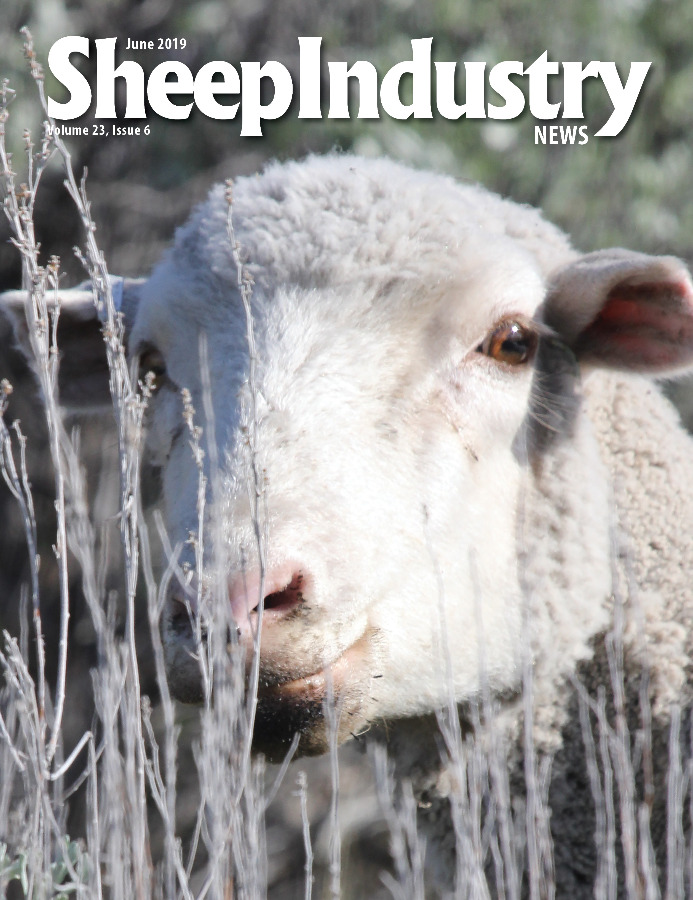
- June 2019
- President’s Notes
- Sharing Boise
- Idaho’s Rangeland Commission Brings Ranchers, Public Together
- Send ASI Your Sheep & Dog Photos
- Colorado Processing Facility Under Construction
- Guest Column: The Importance of Data Collection
- Crowds Flock to California Schools
- Market Report
- Around the States
- The Last Word
To View the June 2019 Digital Issue — Click Here

Association Makes Summer Plans, Pushes Industry Concerns in D.C.
Benny Cox, ASI President
The first few months of the year are always a busy time for ASI and the association’s executive board. Once the ASI Annual Convention ends in January, it takes a few months to wrap up all the finances of the event and even longer to sort through all the policy decisions that were made and tasks that were outlined for the association staff and leadership.
The executive board has met both at a face-to-face sit down and via a conference call since the first of the year to handle ASI’s business. One of the tasks at hand in the new year was to appoint council and committee heads and members, and that we have done. We’ve also printed the new ASI Directory, which includes all of those council/committee assignments.
We carry the additional responsibility of nominating those from our industry to the U.S. Department of Agriculture to serve on the American Lamb Board and the National Sheep Industry Improvement Center. The executive board has nominated qualified individuals for each of these important openings, and we’ll wait to see who USDA selects to fill those positions in the months to come.
The invites for many of your annual state meetings are coming in daily and the officers met in early May to discuss these and other important business. We will strive to have officers or executive board members at as many of the state meetings as possible to report on ASI business. Continue to send those invites as soon as the dates are definite, and we will do our best to work with state representatives to coordinate attendance on ASI’s behalf.
ASI Executive Director Peter Orwick and I – along with others – have continued to reach out to USDA in matters important to our industry. We have crafted two important letters that have been sent to Washington, D.C., in the past month. One letter addressed import issues or pressures, and one was a request that would put us in line for a piece of the $5 million in the Farm Bill allocated for the Minor Use-Minor Species Animal Drug Program formerly known as NRSP-7.
“The squeaky wheel is the one that gets the grease,” they say, and there is major competition for Farm Bill funding. As always, Rep. Mike Conaway (Texas) continues to work for the American sheep industry, and we have asked him to carry our message on the animal drug program to USDA. The ASI officers and staff met with Christopher Chaffee at the White House during the Spring Trip in March, and we provided him the letter with our top international trade priorities and concerns to share with the administration’s trade officials.
The traditional sheep market has improved since January, with fat lambs going to our major packers bringing in some cases more than $160 per hundred live weight on those lambs being sold at the right weights. This, in return, has driven feeder lamb prices upward – I know that for certain on the early wool lambs sold in Texas.
Easter trade was good for industry packers. ASI Secretary/Treasurer Brad Boner informed me that Mountain States Rosen sold all its legs and was pleased with that business. I would hope we stay current in the feedlots and the feeders make good profits on their fat lambs. All facets of our industry need to see profitability for their efforts from the farm gate to the meat retailers. Speaking of the packers, Peter stopped at the building site of a new lamb processing facility in Brush, Colo., in May and you can read more about the new plant in this issue of the Sheep Industry News.
We here in Texas – especially in the areas where most of the sheep and goats are found – have had the best conditions I have ever seen this winter and spring. The lambs and kid goats are as fat as I have seen in many years. Ya`ll keep on doing what you do best, and I will see you on down the road.

